Retiree Beryl Smart shuffles on to the city-bound train and scans the packed carriage in search of a seat.
The 76-year-old is a regular train user with a persistent problem.
“Once I get on, no one will move — they can see me but nobody will move,” the Lugarno resident says.
Bus drivers have refused to continue on their route until thoughtless commuters made room for elderly passengers
As the train pulls out of Oatley station in Sydney’s south, Smart struggles to stay upright in the aisle of the lurching carriage.
“I’m very disappointed with all these young men, they just sit there,” she says.
Sydney is amid an epidemic of selfish behaviour on public transport caused partly by self-absorption in mobile phone screens.
Transit officials, who have just completed a campaign to remind commuters to respect others, admit it is perhaps the worst they’ve seen.
Every day on the city’s trains and buses, Sydneysiders face increasingly discourteous behaviour at the hands of other passengers. Many find it too intimidating to assert their right to a seat.
State Transit chief executive Steffen Faurby says, “I’ve seen it myself.
“It appears to be an increasing issue of people not getting up and giving their seats to those who need them, like seniors, people with mobility issues, parents pushing prams and holding children and pregnant women.
“The fact most people are on their mobile phone probably doesn’t help.
“It’s a distraction but may be something to hide behind so they don’t notice if someone else needs the seat more than them.
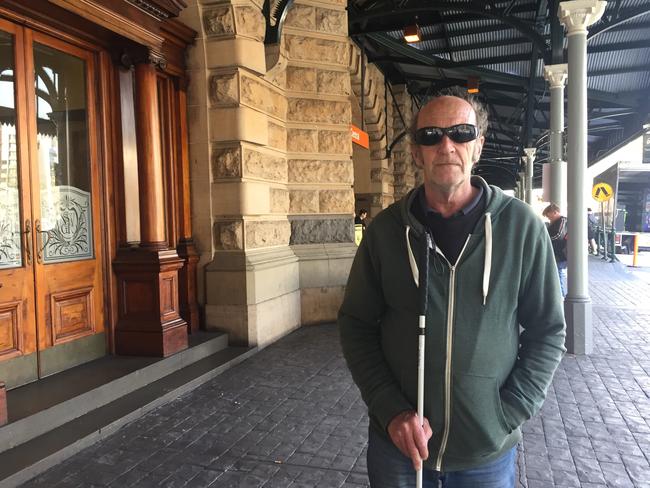
“There are plenty of bus drivers who insist that passengers who can stand, give up their seat to someone who may have difficulty.
“But it should be a common courtesy.”
Faurby cites examples of bus drivers refusing to continue on their route until commuters have made room for elderly passengers.
Drivers have also complained about customers so absorbed in their mobile phones they don’t signal for buses to stop and then abuse the driver.
And passenger advocates say the solution may be legislating behaviour, which has worked in countries such as Singapore.
Saturday Extra sent our reporters out on train and bus routes this week and observed regular examples of boorish commuter behaviour.
In the digital age impoliteness has been taken to a new level by passengers glued to their phones or wearing earphones or headphones, oblivious to all around them.
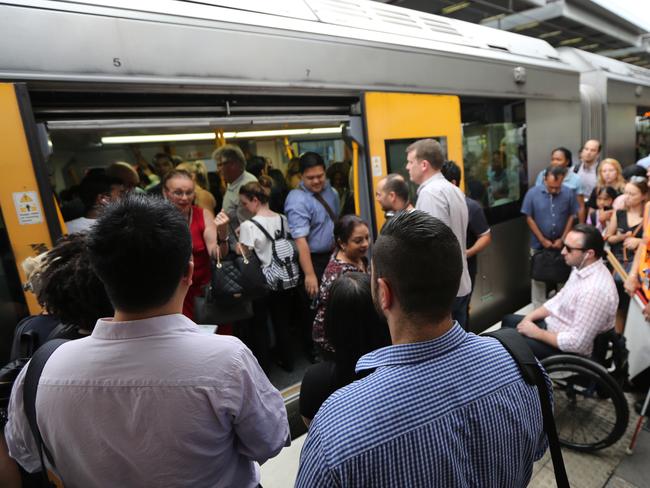
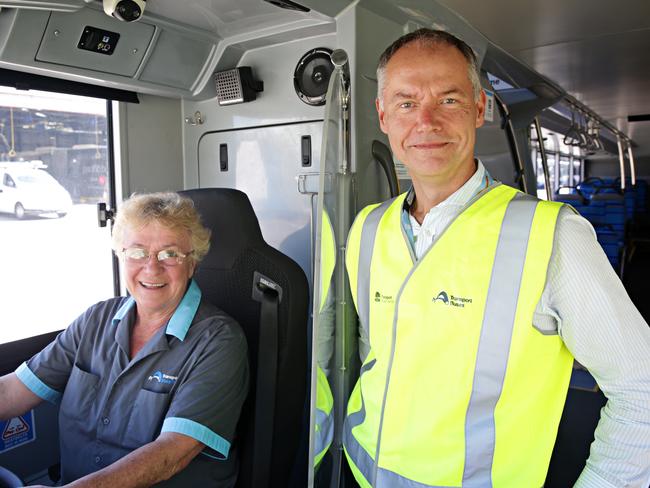
Among other annoying acts are people putting their phone on speaker or playing loud videos or games.
Then there is putting a bag on an adjoining seat to stop someone else sitting there, charging on to a train before those leaving have a chance to get off, or creating a pungent aroma by eating hot food on trains and buses.
One frustrated commuter complained a man set up a “mini suite” in a train carriage using a construction sign to occupy four seats for himself, his backpack and his digital devices and chargers.
Another told of passengers eating a kebab, a fast-food burger or a curry on train journeys that was guaranteed to create extra space around them.
Bruce Guider, 63, from Ashfield, is blind, but says he has had impatient and aggressive commuters intimidate him when trying to get off trains. He says people were failing to take notice of vulnerable public transport users.
“People just pick up their phones and look at them,” he says. “Let’s just say they’re too self-absorbed.”
Guider says commuters have verbally attacked him when trying to get off trains.
“It’s more the inconvenience of people not taking notice,” he says.
“During peak hour, people push and, at other times, it’s when I’m trying to get off and they’re just standing in the middle of the doorway trying to get on.
“I’ve had people say to me, ‘Listen, don’t be so bloody stupid, you were the one in the wrong, you’re standing in the doorway, how do you expect people to get off?’ ”
Dubbo woman Glenda Stoddard, 59, uses a wheelchair when travelling on Sydney trains with her family and says people are often rude.
She says it is especially hard on crowded trains with her wheelchair.
“They don’t move,” she says. “I usually just say, ‘If you let us through, we’ll get by.’ You have to be forceful, but not mean.”
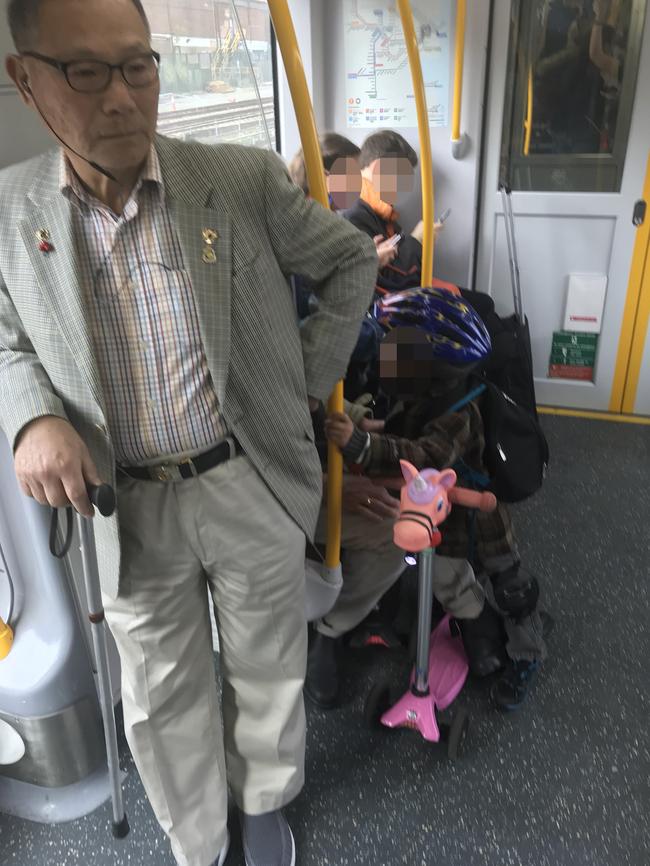
Confusion around equality of the sexes, bad body odour and perfume “skunkers” who fill a carriage with scent add to complaints.
A female commuter says of another incident: “One night a man urinated in the carriage and it was like a tsunami of wee in a wave up and down as the train stopped and started.”
A middle-aged commuter who regularly travels on the double-decker B-Line buses from the northern beaches to the city says his biggest bugbears were queue jumping and passengers putting bags on the seat next to them.
“People queue in an orderly fashion for the bus and then latecomers, usually young people, jump ahead of everyone and get on first,” he says.
“Then they put their bag on the seat because they don’t want anyone sitting next to them.
“I walked on to a B-Line bus the other day and six people upstairs had a bag on the seat next to them.”
“If you ask them to move the bag so you can sit down they make a real performance out of it. Men and women do it, but mostly men.”
One man Saturday Extra observed giving up his seat for a dad with two young kids was surprisingly more in need of the seat himself.

Myung Keun Kwak, 75, a Vietnam War veteran from Campsie, walks with a cane, but still stood to give someone else his seat.
“It’s just the way we were brought up,” he says. “To be polite to other people and look after those who need it more.”
As he leant against the swaying carriage on his journey to Central station no one else budged, including a trains worker looking at his phone.
It is a far cry from the Sydney of almost two decades ago when the Harbour City stunned the world by staging an Olympic Games that set a high-water mark for civility and friendliness.
The real stars then were the 50,000 volunteers — ordinary men and women in colourful uniforms who helped tens of thousands of visitors during a magical two weeks.
Today, riding public transport in the Olympic city you could be excused for thinking the place has been taken over by barbarians.
One of the main groups singled out for criticism of their behaviour on trains and buses is school students.
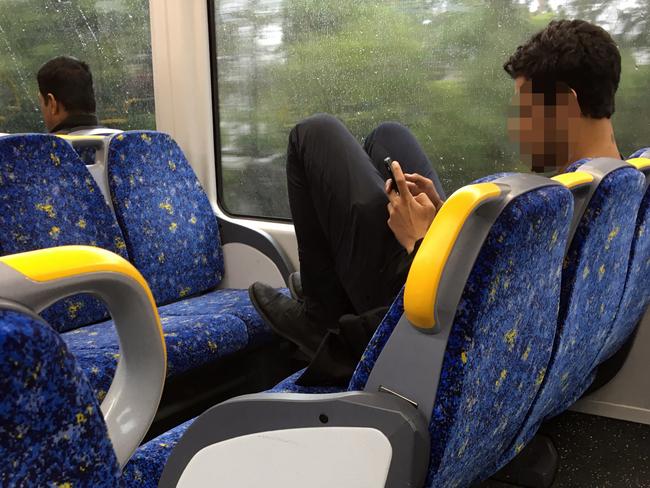
A Department of Education spokesman said public schools expect their students to behave courteously and appropriately on public transport. Private schools also enforce a code of behaviour for students on public transport.
However, Saturday Extra has learnt State Transit has complained to some of Sydney’s most affluent schools over students hogging seats on bus routes.
While train passengers have resorted to sending phone images of seated students on crowded trains to the relevant school.
NSW’s Department of Transport, which has just finished a four-week poster campaign to promote courtesy, says levels of common decency are low.
“It is unfortunate when people preoccupied by their phones leave less mobile passengers unnecessarily standing,” says Tony Braxton-Smith from Transport for NSW.
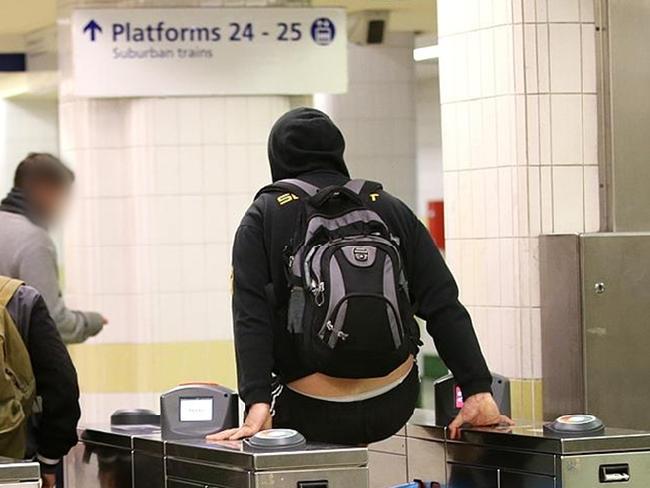
“We encourage all of our customers to treat others with respect and empathy while travelling on public transport.
“Designated priority seating is there for a reason and should be made available to those that need it.”
Good behaviour campaigns in the past have been successful with 78 per cent of respondents to one online survey saying it made them think twice about their behaviour.
Transport for NSW recently finished its poster campaign Need A Seat? and last year the Police Transport Command joined Sydney Trains to launch a Bad Behaviour Blitz on the rail network.
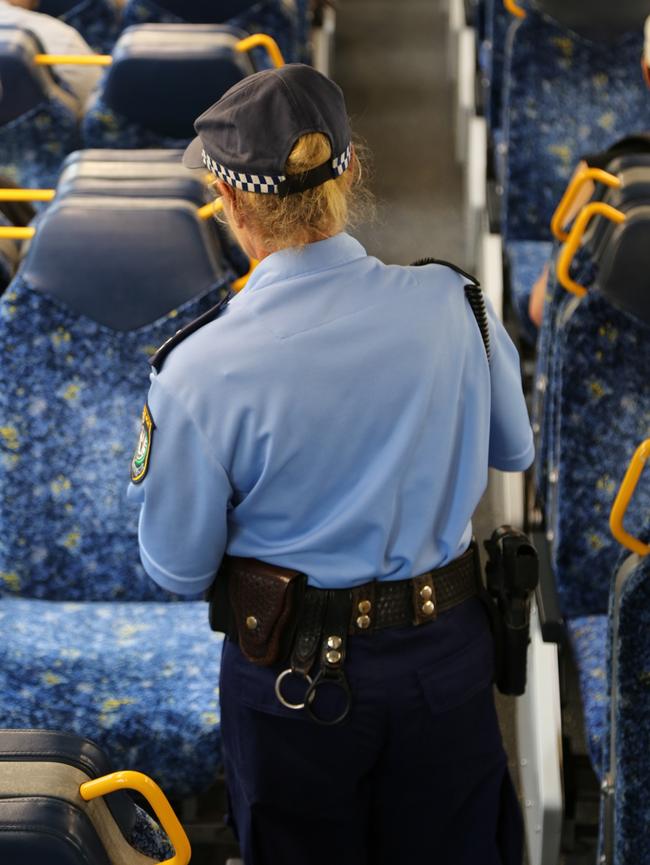
Called Operation Disrupt, hundreds of fines were issued for a range of anti-social behaviours including fare evasion, littering and offensive language.
Chief executive of Sydney Trains Howard Collins says of the blitz: “We are talking about basic manners that not only make train journeys more pleasant for everyone, but helps to avoid train delays caused by people not being able to board and alight quickly.”
And commander of the Police Transport Command, assistant commissioner Max Mitchell, says: “It is simply not OK to put your feet on the seats, smoke on trains or platforms, discard rubbish or use offensive language.”
In her previous job as transport minister Premier Gladys Berejiklian flagged an expansion of CCTV cameras to improve passenger safety and behaviour.
Social demographer Mark McCrindle believes the inconsiderate behaviour has increased as Australians become less community minded.
“People do not want to give up their comforts for the sake of others,” he says.
“They are in their technology bubble and don’t see around them because they are looking down.
“A lot of it is not rudeness, it’s a lack of awareness.”
